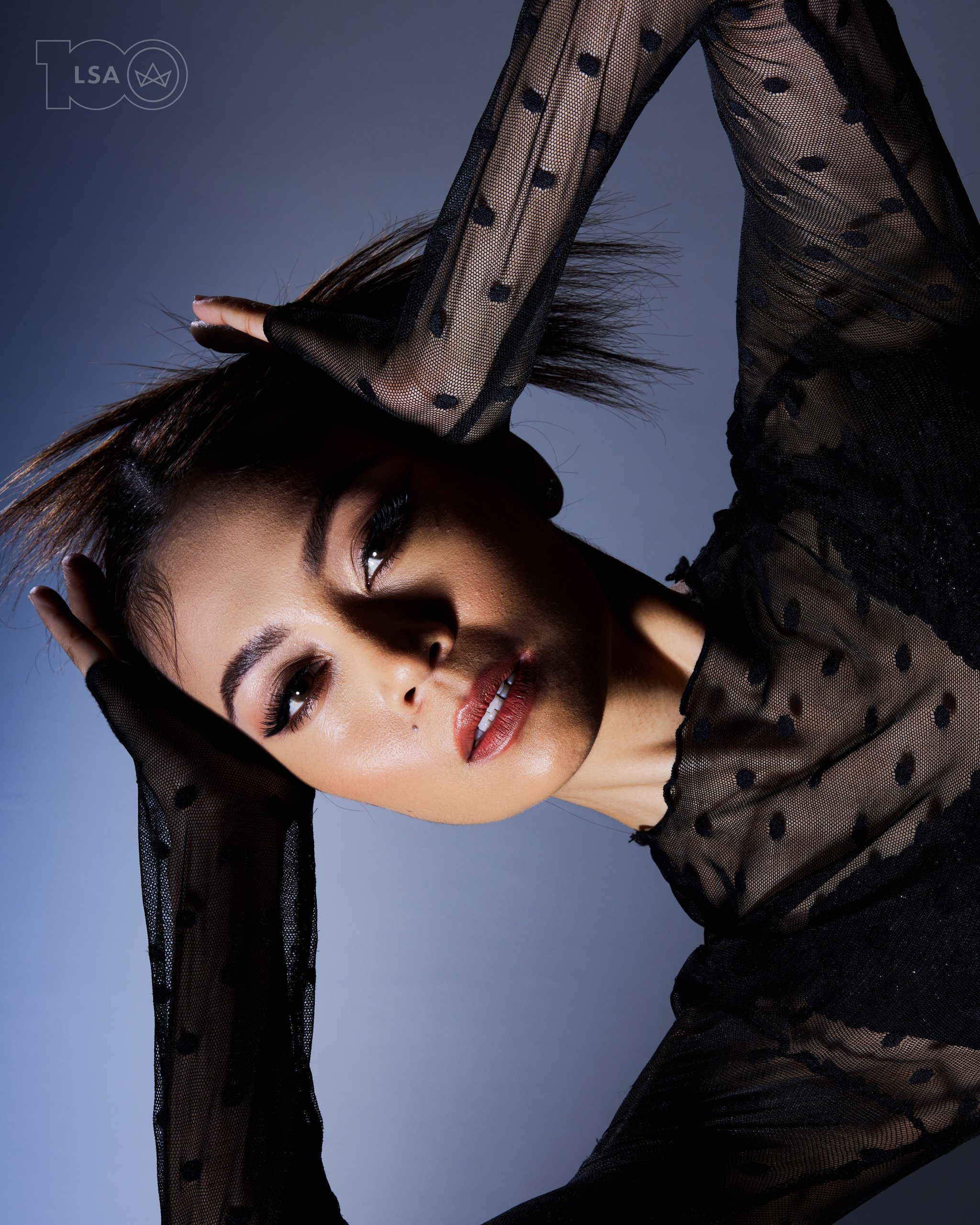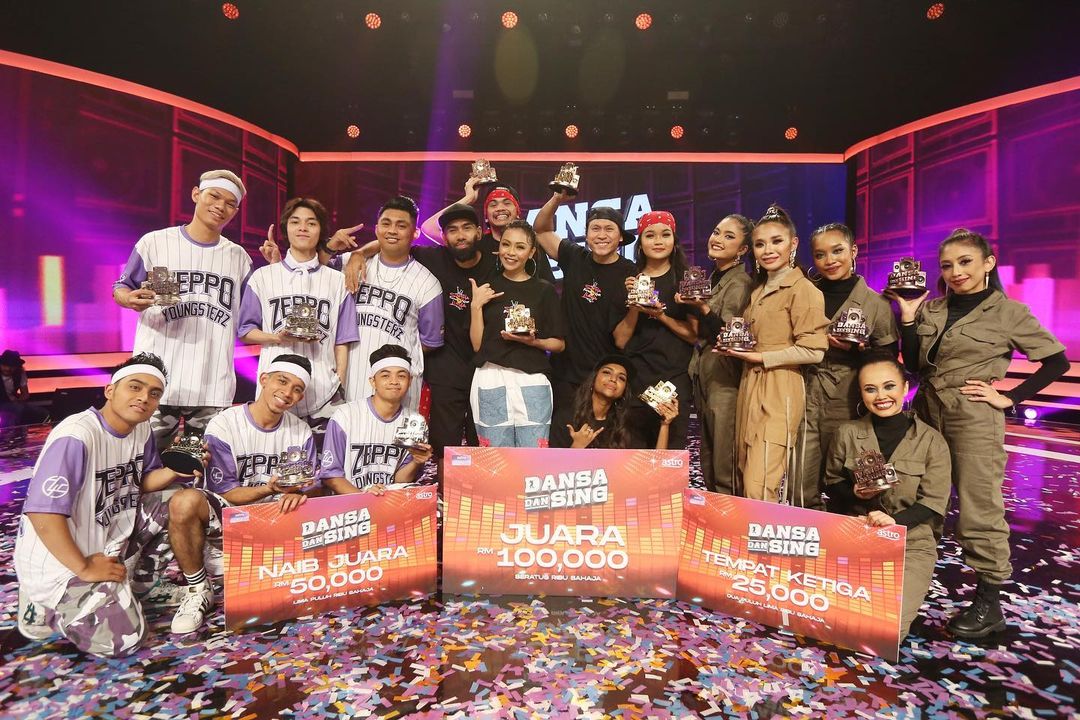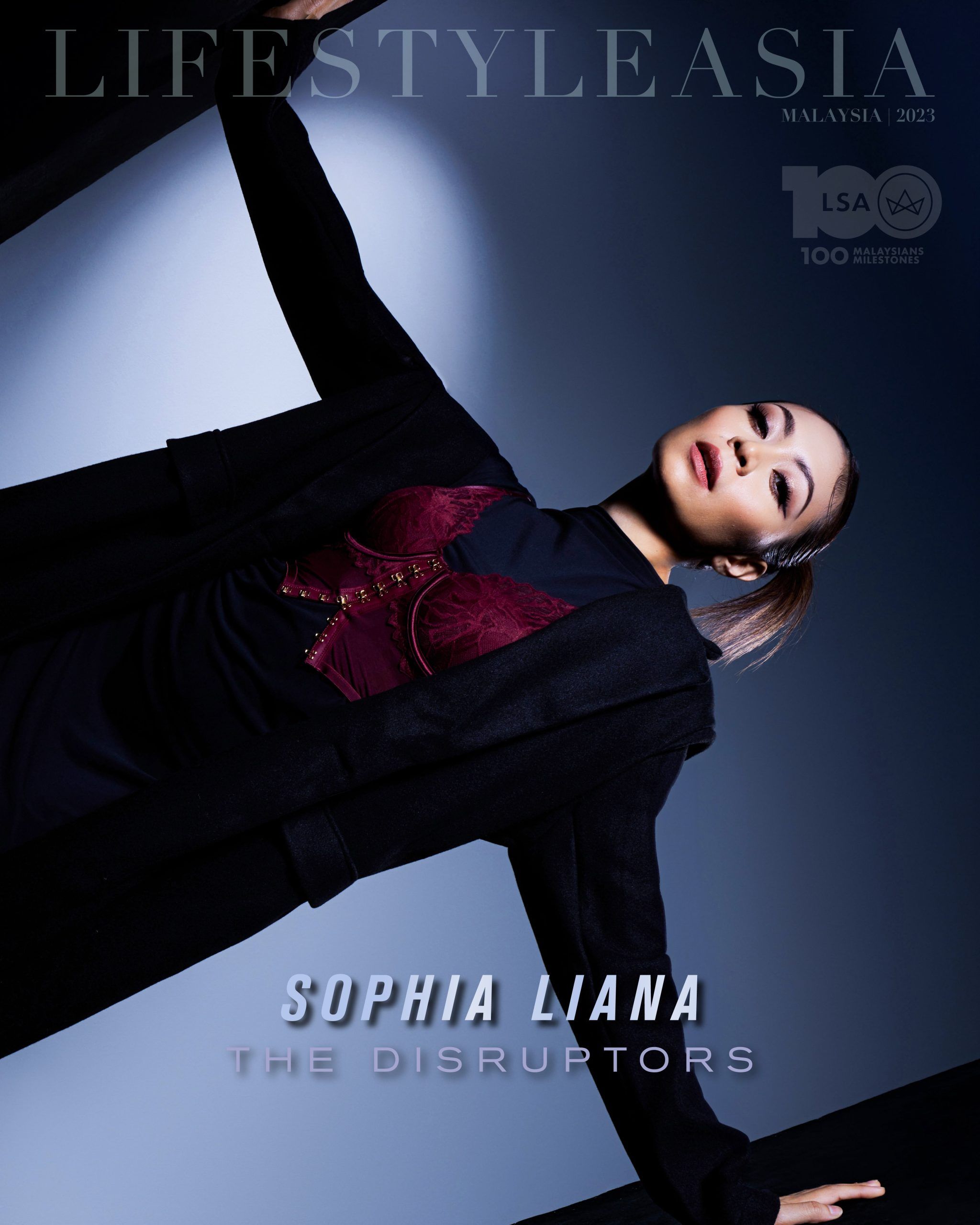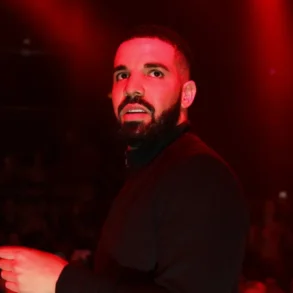Having immersed herself in the local hip-hop industry for almost a decade, Sophia Liana has been experimenting with her own voice and finding herself outside of De Fam. Now, she wants only one thing: to break through globally, and bring her own music out into the world.
Here’s something you should know about Sophia Liana: she’s got sick rap flows and a fierce face card, but in truth, she’s an absolute sweetheart. She is both lover and fighter; either way, they each stem from passion — and Sophia is brimming with it. But on the set of our shoot where the crew is whizzing around, she is perched comfortably on the makeup chair with her cup of coffee.
“Fia is our rapper, so a lot of people think she’s boyish, because she always has so much energy on stage,” Azira Shafinaz told me earlier this April, when we had the girls of De Fam on for a fashion spread. “But she’s actually a real introvert.”
Since De Fam’s inception back in 2015, Sophia has been the girl group’s songwriter and muse. She was the one who decided which types of songs would best fit them as a whole, and penned not only her own rap flows but the also the intricate melodies that carried throughout their most iconic songs including “#SUPERGIRLS”, “Panas” and their most recent single last year, “Berubah”.
De Fam has been at the core of Sophia’s rapping career, but in the post-pandemic era — the year Cik Manggis underwent a big self-image rebrand, and the year Azira threw herself into the world of acting — Sophia had begun finding her own voice in music. She knew exactly who she was in the industry and where she wanted to steer her career towards. Alongside the dance crew Budak Ngam, Sophia entered the musical competition show Dansa Dan Sing, and emerged as its champion. From there, her journey as a solo female rapper kick-started.

The catchy beats of Sophia’s latest solo single, “NAH”, which I have had on repeat for over a week now, are still pulsating in my mind even as I approach her for our interview. If you’ve been closely following De Fam’s singles, especially from their early oeuvre, it might become pretty clear that Sophia’s style has matured over the years — in both sound and songwriting. “NAH” is a great solo song to leave 2023 with; it certainly keeps you wondering what she has up her sleeve next. An epic clapback to the ‘blame game’ that often happens in the social media world, “NAH” is both cheeky and hard-hitting, and best of all, very, very catchy.
Sophia greets me warmly as soon as I sit by her, asking me how I’ve been and what I’ve been up to since we last spoke before I can get my first word out. We catch up on how her solo rapping career has been going so far, what she’s got coming next, and her hopes for the rap and hip-hop scene.
You’ve come a long way as an artist and rapper. What would you say have been some of your most standout moments throughout your career?
My best moment would still be the time I was in Dansa Dan Sing. That was an experience for me to really understand how I was gonna break through in music, as a solo artist, from my group. It was like a stepping stone to my solo career. I feel like from there, people started to really acknowledge me as a solo artist — besides me doing stuff with my group De Fam. I think my real breakthrough was the competition, because I also won!

And how has that been, navigating your solo career?
It’s been a rollercoaster ride, I would say. Sometimes everything can be perfectly planned for you, and sometimes, you know, there will be problems on the way. Especially when you’re trying to achieve what you want to achieve. There are always gonna be road bumps; road blocks here and there. But those have also helped me understand that as a solo artist, it’s a very different process for me to push myself than how it was as a group. In a group, it’s much easier. When you’re on your own, you really need to have the X factor. If you don’t have the X factor, it gets really hard for people to acknowledge you.
Especially now with so many new, up-and-coming artists in the scene.
Yeah, exactly. And so many young artists, too! Like, even though I was mostly rapping with the group, I started rapping when female rappers weren’t a thing yet [here]. I think in that way, I really ‘disrupted’ the scene — by going way far left, compared to how other people started their careers as a singer or an entertainer. Because female rappers were quite new to the industry at that time; it was dominated by men. Especially here. (Laughs) That’s how I would describe my journey. It has been wonderful, and beautiful, because it has had its ups and downs. But I don’t usually share the times when I was at my lowest. I write them out in my songs. I won’t tell a lot of people or make it into a big thing, to the point where the media would notice or whatever. (Laughs) It’s just something I keep to myself and channel it creatively.
So, going back to the start — how did you first get into the world of rap, and make that decision to become a female rapper? Or did you always see yourself doing this?
I’ve always wanted to be a female rapper when I was with De Fam. But as a solo rapper, I only properly started to realise it in 2019. I stopped myself from producing anything other than with the group, and just focused on learning with a rapper who’s big in the industry. I took a year off to really study what rap really is, especially in Malaysia, and how I wanted to portray it in our way — not the ‘Hollywood’ way. Because those styles don’t necessarily navigate here well. And from there, I realised, ‘Okay, yeah. I wanna be a female rapper who produces something unique for the industry.’ And at that particular time, there weren’t any established female rappers yet [in Malaysia]. So, I thought it was a good opportunity for me to grab; something new for the [local music] industry, instead of being a singer.
I would say that I can sing, but I enjoy rapping more. It feels more natural to me. It gives me the energy of just being myself on stage and making me feel more alive, and be free. I also wanna give a shoutout to 16 BARIS as well, because it gave me that opportunity before I even went on Dansa Dan Sing. It was the key for people to see me as a female rapper instead of just ‘part of a girl’ group. It’s what led me to really say to myself, ‘Yes, this is the career that I want.’ And I want to inspire other women to see that they can make this as a career.
With the shift from being in De Fam to your solo career taking off, would you say your ‘sound’ or musical style has changed or grown since? If so, how?
I think as of now, I’m still experimenting with myself. I don’t really have a fixed sound that represents myself; that I can say, “Okay, this is my sound.” I’m still experimenting from my songs with the group, and to figure out how I can differentiate myself and my character as a solo artist. I’m looking for a sound that can slowly elevate me in my music as well. With my first solo single, and then my second and third — these are the experiments that I’m [doing] to try to understand. Like, which ‘route’ is the strongest for me? I want people to know that I’m a female rapper, but I do sing as well. It’s a different kind of package that I’m trying to rebrand myself with, a different side of me.
This year, you released your single, “NAH”. Tell us a bit about that, like, how did that come about? What’s the story and the process behind that?
“NAH” was a project that’s quite close to my heart, because I asked for help from people that I know. It goes a year back, it was only this year that we had the opportunity to put it out as a single. And this song is something that feels super different, because I’m talking about what is currently happening, especially in the social media world. The topic is something new.
And I’m always trying to use the right Malay words [in the song]. I always wanna test the market by being a rapper who creates Malay lyrics instead of just English. I mean, I will include English words; I will mix it up and all that, but my main objective is also to challenge myself to write in Malay. Honestly, when I started in the industry, I didn’t really know how to write in Malay. (Laughs) I wrote 100% in English Because when you study rap, you study a lot of US rappers like Eminem and Drake, so all of your examples are always in English. It’s so hard to find examples of Malay rap, especially female Malay rap. We don’t have proper references, or inspiration that we can really look up to. So, I hope one day I can be the one that is helping the newcomers to be inspired and be better and better so the industry will always flourish. It would be really nice to see a lot of talents come up.
How did you train yourself to write in Malay then?
It was quite a process, I would say. (Laughs) I learned from my friends, who are really big in the industry. And besides that, I would look in the dictionary a lot when I write in Malay. I would always cross-check all the words. And I always, always practise. With rapping, you need to really practise — because if it sounds weird, you need to change it. Some words are not meant to be in certain flows. Like, in Bahasa Melayu, we’ve got the ‘mem-’ ‘per-’ ‘ter-’ in front of our words, so it’s really hard to make it sound smooth in a rap flow. And you have to make the rap sound fun and natural, so that people can also rap along. That’s one of the challenges that I personally go through, as a writer and a rapper. But slowly, I think I’ve found my identity through all the things that I’ve been through. And when I’ve found it, I feel like I just want to keep experimenting and see which one is the best for me. There are two things I’m always focusing on: to better my craft, and to experiment what sound is ‘the’ sound for me.
How has the response been for “NAH”?
I think people have really accepted me as a female rapper. ‘Cause no one really tells me that my raps are wack. (Laughs) But I feel it’s more about either they listen, or they don’t listen to my songs. So, now my target has become even bigger than before. I really hope that one day I have the opportunity to get more people to listen to my songs, and not just, like, within a certain market. Yeah, I really hope I can achieve that one day.
You’re one of the pioneers of female rap in Malaysia. And the way music is being consumed now has changed so much from when you first started. How do you navigate that change, especially with the rise of Gen Zs in the audience and market?
I think the way I navigate it is to always study what the market wants — especially what the youngsters are listening to. I won’t stop myself or be very egoistic by not trying to understand how the youngsters are, or what they like. So, I always try to be open, and to understand. But I will not lose myself just because I want to follow the trend. I won’t do that. I try to blend it with my own style. Like, if this thing is working for the younger generation, I’ll apply it to my stuff. But I will still make sure that I have me in it, too. That’s how I stay relevant, I guess. I really hope next year I’ll have a song that really gives a different impact — not just on myself, but on the music industry and everything.
Following that, what are your thoughts on creative expression in the local music and entertainment industry today? Do you see a lot of differences in terms of what is accepted, or what is being shown to the people?
Super different. I think they’re a lot more chilled back [now]. They don’t want a lot of serious topics. They want something vibey; that’s how I see Gen Z. They’re all about that ‘delulu’ life, right? (Laughs) It’s just the stuff you see on TikTok. And the funny thing about music that I’ve noticed is, whatever that goes viral on TikTok does not always translate to your Spotify streams. Sometimes, it’s just the 15-second clip that people like, but it doesn’t translate to the real song. And in that sense, it’s kind of tricky. You need to understand how to draw people in with your whole song. It’s actually really hard, and it’s something a lot of people should acknowledge. That’s why I keep saying that it’s an ongoing experiment. People and their interests keep changing, and fast. Especially with what they listen to. They might like your song today, but tomorrow they might listen to something else completely. It’s very subjective in that sense, you know? So, I just believe that if you create the right branding for yourself, your longevity in the industry would be better. Because if you only keep following the trend, well, the trend will keep changing. You just need to be able to build yourself as ‘solidly’ as possible.
So, to wrap up, what are your hopes for the industry in the future?
My hope for the industry is to really open their eyes and minds and thoughts to be more accepting of female rappers here, and give them the same opportunities as they would male rappers. And I do hope that people appreciate my music, especially the new ones that are coming out as well, and also my hope is to break through globally — first to Indonesia, one day. I hope people will listen to my songs and resonate with them — and maybe be inspired to achieve their own dreams, it doesn’t matter what. But when they listen to my songs, I hope they uplift them.

LSA100: 100 Malaysians, 100 Milestones
Lifestyle Asia KL introduces LSA 100, an annual list that recognises Malaysia’s most influential names and celebrates their talents, contributions, successes and milestones. As the bellwether of style, travel, design, entertainment, business, sports, and more, these 100 Malaysians represent the next generation of go-getters who are paving the way for sharing their know-hows with the world through the power of digital media. LSA100 comprises five categories namely The Rising Aces, The Trailblazers, The Disruptors, The Tastemakers and The Navigators. Find out more about LSA100 Class of 2023, HERE.
editor-in-chief & creative direction MARTIN TEO | interview PUTERI YASMIN SURAYA | assisted by RONN TAN & MALLIE MARAN | photography HERRY CHIA | videography SIMON TAN | video editing JACKIE MAH | makeup SHIYO JOO using YSL BEAUTY | hair CODY CHUA | stylist AZZA ARIF | wardrobe LA SENZA
This post was originally published on this site be sure to check out more of their content.









